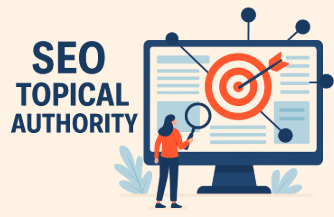In the ever-evolving world of digital marketing, SEO (Search Engine Optimization) remains one of the most critical strategies for driving organic traffic. But as search engines like Google get smarter and user behaviors change, traditional SEO practices are no longer enough. Enter AI-driven SEO automation — a game-changing approach that combines artificial intelligence and automation to streamline processes, improve accuracy, and unlock new growth opportunities.
This guide explores what AI-driven SEO automation is, why it matters, its benefits, and how businesses can leverage it for maximum result.
What is AI-Driven SEO Automation?
AI-driven SEO automation refers to the use of artificial intelligence algorithms, machine learning, and automation tools to handle repetitive, time-consuming SEO tasks while improving decision-making with real-time insights.
Instead of manually analyzing data, building reports, or updating pages, AI-powered systems can:
- Crawl, audit, and optimize sites automatically.
- Identify ranking opportunities.
- Predict keyword trends.
- Automate on-page and technical SEO improvements.
- Generate SEO-optimized content at scale.
In short, it’s the marriage of AI’s intelligence and automation’s efficiency, giving marketers more time to focus on strategy rather than routine tasks.
How AI Transforms SEO Automation
Traditional SEO involves manual keyword research, content creation, backlink building, and performance tracking. While these steps remain important, AI changes the game by adding predictive capabilities and scalability.
Here’s how AI-driven SEO automation works across key areas:
1. Keyword Research & Clustering
- AI tools analyze millions of search queries in real-time.
- They automatically group keywords into semantic clusters based on intent.
- This makes it easier to create topic-based content that aligns with Google’s semantic search and entity-based indexing.
2. Content Optimization
- AI analyzes top-ranking pages and identifies patterns in word usage, readability, sentiment, and keyword placement.
- Automated recommendations (e.g., SurferSEO, Clearscope, MarketMuse) help writers optimize content instantly.
- Some platforms even use NLP (Natural Language Processing) to generate SEO-friendly outlines or entire articles.
3. Technical SEO Automation
- AI-powered crawlers detect site errors, broken links, redirect chains, and duplicate content faster than humans.
- Log file analysis can be automated to spot crawl budget waste.
- Schema markup and meta tags can be automatically suggested or implemented.
4. Backlink Analysis & Link Building
- AI tools monitor backlink profiles in real time.
- They detect toxic links, evaluate authority, and even identify potential link-building opportunities automatically.
5. Predictive Analytics & Trend Forecasting
- AI predicts future search trends by analyzing historical data, social media, and news cycles.
- Businesses can get ahead of competitors by publishing content before a keyword trend explodes.
Benefits of AI-Driven SEO Automation
Implementing AI into SEO strategy brings a wealth of benefits for marketers, agencies, and enterprise websites:
- Time Efficiency
- Automates repetitive tasks like auditing, reporting, and keyword tracking.
- Data-Driven Accuracy
- AI processes massive datasets quickly, reducing human error.
- Scalability
- Enterprise websites with millions of pages can manage SEO without endless manual work.
- Personalization
- AI tailors content recommendations based on user intent and behavior.
- Competitive Advantage
- Predictive insights allow businesses to act before competitors.
- Continuous Optimization
- Unlike manual SEO, AI systems run 24/7, ensuring constant improvement.
Examples of AI-Driven SEO Automation Tools
Several tools are already reshaping the SEO landscape with automation and AI:
- SurferSEO / Clearscope / MarketMuse → Content optimization with NLP insights.
- Ahrefs / SEMrush → AI-assisted keyword and backlink automation.
- Screaming Frog + Log File Analyzers → Automated technical SEO crawling.
- Frase / Jasper → AI-driven content creation and SEO writing assistants.
- DeepCrawl / Botify / OnCrawl → Enterprise-level crawl automation.
- Google’s RankBrain & BERT (in search itself) → AI in how Google understands queries.
Use Cases: Where AI-Driven SEO Automation Excels
- E-Commerce SEO
- Automating product page optimization, dynamic meta tags, and internal linking.
- Enterprise Websites
- Managing millions of pages with automated crawl and log file analysis.
- Content Marketing
- Generating SEO-friendly content at scale with AI writing tools.
- Local SEO
- Automating Google Business Profile updates, reviews monitoring, and local keyword targeting.
- Voice & Visual Search Optimization
- Preparing content for voice assistants and AI-powered visual search engines.
The Future of AI in SEO
AI-driven SEO automation is still evolving, but its future potential is massive:
- Conversational SEO: Optimizing for natural, human-like search queries.
- Multimodal Search: Handling images, voice, and video queries with ease.
- Entity-Based SEO: Moving beyond keywords to concepts and entities.
- Real-Time SEO Adjustments: AI that instantly updates metadata, titles, and content based on SERP changes.
- Predictive SEO Campaigns: AI systems that launch campaigns automatically based on future search demand.
Best Practices for Leveraging AI-Driven SEO Automation
- Don’t rely on AI entirely → combine automation with human creativity.
- Use AI for data-heavy tasks but keep strategy and brand voice human-led.
- Regularly validate AI recommendations with real-world results.
- Integrate multiple AI tools for content, technical, and off-page SEO.
- Monitor performance continuously to avoid over-optimization.
Final Thoughts
AI-driven SEO automation is not just a trend—it’s the future of search optimization. As Google and other search engines rely more on AI to process queries and rank results, businesses must adapt by using the same technology to stay competitive.
By automating repetitive tasks and providing predictive insights, AI enables SEO professionals to focus on strategy, creativity, and building meaningful user experiences.
Those who adopt AI-driven SEO automation early will gain a powerful edge in the race for organic visibility.




